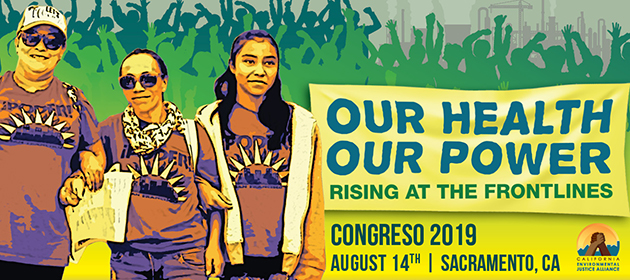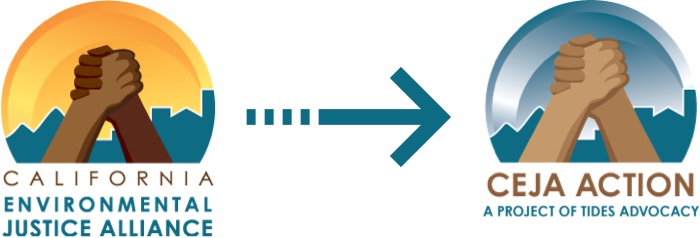Our Health, Our Power: What Environmental Justice Means to Us
Our environmental justice communities must be able to speak for ourselves about the health challenges we face and the best solutions to address them.
Everyone has the right to live in a clean and healthy environment, which includes respecting every person’s right to self-determination. The best people equipped to transform toxic hotspots into healthy neighborhoods are the people who live there. Our frontline communities have long endured disproportionate pollution burdens across California, while state and local agencies continue to deny them a voice in the key environmental and land use decisions that impact their health.
This year, CEJA has been redefining environmental justice in California. One of our legislative priorities, AB 1628 by Assemblymember Robert Rivas, enhances the state’s definition of environmental justice to include the “meaningful involvement” of all people in environmental or land use decisions. Adding “meaningful involvement” would encourage state and local agencies to recognize that the community shouldn’t just be informed or talked at; rather, that community members should be engaged and involved in these important decisions. It means recognizing the long overdue need to address disproportionate pollution burdens with community voices and solutions.
Passing AB 1628 would tell these communities that their ideas and experiences matter. We cannot leave anyone behind, from our farmworkers to our truck drivers. AB 1628 would recognize the health, dignity and agency of all people, promoting the environmental health and quality of life that everyone deserves.

In South Los Angeles, community members have had to actively insert themselves into the planning process, rather than being meaningfully included by local agencies. Many industrial and polluting facilities are located in South LA, including Watts where auto-body shops and metal recycling facilities surround residential areas. For over 5 years, PSR-LA conducted health education, environmental analysis, and advocacy in Jordan Downs, where the city is conducting a massive redevelopment of one of the oldest public housing projects in California and includes a 21-acre industrial site that was found to have elevated levels of metals such as lead and arsenic.
These toxic contaminants were also found at high levels throughout the area and put thousands of residents at risk to exposure. Yet despite this risk, inadequate measures were taken by agencies to protect the health and well-being of the community. After almost a decade of organizing and engaging the community to envision a new Jordan Downs, the existing soil and groundwater pollution around the housing project has halted the mixed-use redevelopment. This is just one example of the types of consequences that communities endure when they have been excluded from key land use decisions in their neighborhoods.
AB 1628 is just one of the environmental justice priorities that we will lift up this week at our 2019 Congreso “Our Health, Our Power: Rising at the Frontlines” this Wednesday, August 14th.

We’re so excited to bring together 200 community leaders from frontline communities to rise up and show their decision-makers in the State Capitol that their health and their power matter. Please follow us on Twitter throughout the day by following @cejapower and the hashtag #OurHealthOurPower!
Thanks to Chelsea Tu of Center on Race, Poverty & the Environment and Jazmine Johnson of Physicians for Social Responsibility – Los Angeles for contributing to this blog.

